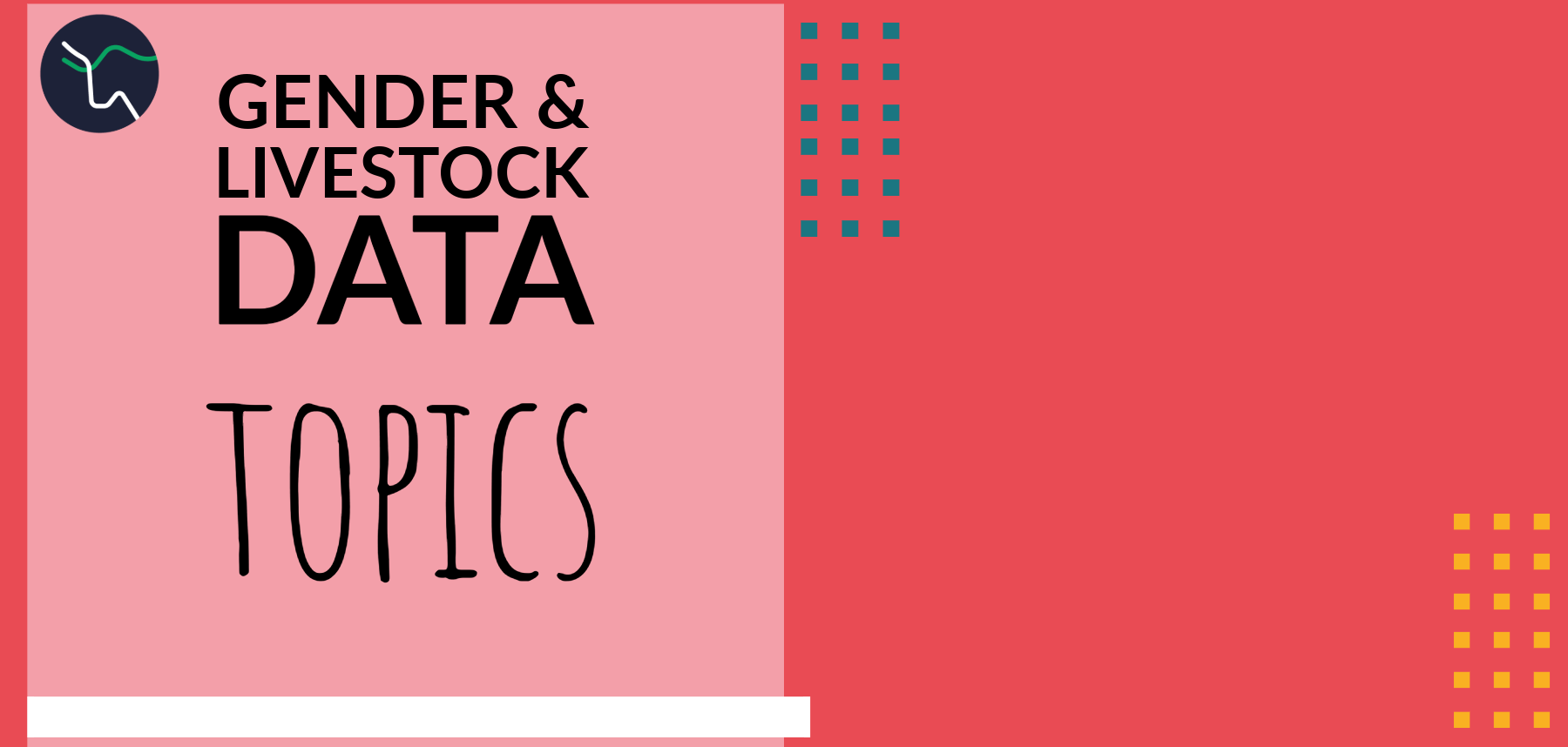Safety Matters and Women Livestock Smallholders – Insights from Gender & Livestock Data Community of Practice Topics, August 2025

Our August 2025 online community discussion on safety concerns for women livestock smallholders emphasized that women’s safety is a critical factor in successful livestock rearing. It also examined the measures currently being implemented to address these challenges. Although brief, the discussion revealed several key ways in which safety concerns influence women smallholders’ willingness and approach to raising livestock.
Poultry Thefts
Drawing on their experiential insights, the Gender & Livestock Data Community of Practice members emphasised that poultry theft is a significant discouragement to women. The thefts occur at night and particularly affect elderly women in Kenya who depend on poultry as a primary source of livelihood. Some women have already stopped keeping large numbers of chickens altogether. Others have resorted to using guard dogs in an effort to deter theft and safeguard their birds. In addition, some women have constructed tightly enclosed coups, limiting airflow inside the coups but providing a greater sense of security. Despite these strategies, the fear of losing their poultry—and with it, their economic stability—remains an ongoing concern.
Domestic Violence and Decision-Making in Livestock Rearing
Another critical issue raised during the discussion was domestic violence and its impact on women’s ability and willingness to participate in household and community-level decision-making roles. This has direct implications for women’s involvement in livestock rearing and broader agricultural development.
Two empirical studies were discussed in this context:
Hatcher et al. (2022) – Systematic Review of 42 Studies
This review synthesized evidence from 42 empirical studies conducted in low- and middle-income countries (LMICs) on the relationship between food security and violence against women and girls (VAWG).
The findings highlighted that inequitable gender norms, economic hardship, and social isolation drive both food insecurity and experiences of violence.
Food insecurity often leads to household stress and unmet gender expectations, which may trigger survival behaviors that increase the risk of VAWG.
Conversely, exposure to violence exacerbates food insecurity, particularly when women are left economically vulnerable after leaving abusive environments.
The study emphasized that solutions require male engagement in VAWG prevention programs and greater financial stability for households. These interventions could provide a long-needed shift in harmful gender norms and help women build stronger social networks.
Wessells & Kostelny (2022) – Impact of Domestic Violence on Mental Health
This study examined how repeated acts of domestic violence impact women’s mental health, leading to diminished self-worth and reduced confidence.
The findings are especially relevant for understanding the lived experiences of women smallholder livestock keepers in non-empowered households and communities, where domestic violence can severely limit their agency, decision-making power, and resilience.
Implications for Gender-Responsive Livestock Development
These insights underscore the need to view livestock development not only through a technical and economic lens but also through a gender and social inclusion perspective.
For poultry keepers in Kenya, ensuring physical security of assets (e.g., livestock and housing) is a prerequisite for sustainable production.
Addressing domestic violence and the broader social structures that perpetuate gender inequities is critical to enabling women’s fuller participation in livestock systems.
Evidence from both studies points to the importance of integrated interventions—combining economic empowerment, prevention of gender-based violence, and supportive social networks.
Ultimately, these discussions highlight that fostering sustainable, gender-responsive livestock practices requires addressing not only productivity and animal health but also the social determinants that affect women’s safety, agency, and wellbeing.
Join the Topics – Our Monthly Online Discussions
The online discussion is open to all members of the LD4D Gender & Livestock Data Community of Practice and takes place on our dedicated online hub.
Keen to at part and make your contributions to our monthly discussions?
👉 Join the conversation:
Not yet a member?
The Gender & Livestock Data CoP is free to join — become part of a vibrant community committed to advancing gender equitable livestock development through data and shared learning.


